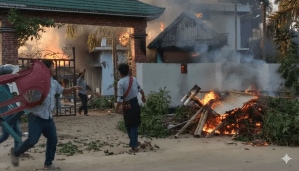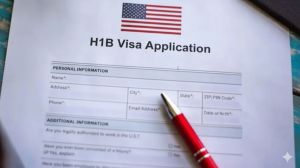Poll-bound UPA eyes another law,plans more bite for SC/ST Act
With polls around the corner the UPA government is eyeing another populist legislation.
With polls around the corner,the UPA government is eyeing another populist legislation amendments to the SC and ST Prevention of Atrocities Act,to reinforce its Dalit and tribal vote bank.
Last March,the Ministry of Social Justice amp; Empowerment had circulated a draft Cabinet note bringing in more offences and preventive measures under the Act,and promising speedy trial with enhanced punishment. Amendments would deliver members of SCs and STs a greater deal of justice and will also be an enhanced deterrent to the offenders, said the draft.
As per the 2011 Census,Scheduled Castes SCs form 16.2 per cent of Indias population and Scheduled Tribes STs 8.2 per cent. But in rural areas,the main vote bank of the Congress,they constitute 68 per cent of the population.
Sources said the ministrys intent was to introduce the amendment Bill in the post-recess Budget Session that started on April 22 but it was thwarted by the Oppositions continued boycott. Now it would be introduced in the Monsoon Session,they said.
The crucial change concerns the requirement to establish that the offence was committed with the foreknowledge that the victim was a member of an SC or ST. It is one of the gravest shortcomings in the current law,prejudicing the actions of the authorities.
There are numerous cases of police refusing to register complaints unless the complainant can establish that the identity of the victim was in fact the ground for committing the offence, noted the draft proposal. Victims were asked to produce caste certificates,and even if a case was registered and prosecuted,failure to prove caste identity formed the basis for acquittal,it noted.
The amendment therefore proposes: Wherever the accuseds knowledge of the victims caste or tribal identity is required to be established8230; and it is shown that the accused was acquainted with the victim or his family,the court shall presume that the accused was aware of the caste or tribal identity of the victim unless proved otherwise.
The proposed changes:
Atrocities to now include preventing SCs and STs from filing nomination as candidates or forcing them to withdraw it; preventing them from seconding a nomination in any election; or,obstructing a member of the panchayat or municipality in performing their duties.
Included as atrocities are social or economic boycott of SCs and STs; obstructing their use of common property resources including water; or,preventing them from entering a place of public worship or from taking out religious,cultural and or social processions.
Parading a person semi-naked or naked,forcible tonsuring of head or removal of moustache or garlanding with footwear would be considered offences.
The act of begar forced labour would be expanded to include forcing a member to remove a carcass,indulge in manual scavenging or serve as a devdasi.
Destruction of crops or taking away of land produce or cattle and animals belonging to SC,ST members or filing of counter cases to intimidate them into withdrawing complaints would be considered as atrocities.
Under increased preventive measures,public servants would have to investigate any complaint and file a chargesheet in a dedicated special court within 30 days while providing intermediate relief,protection and compensation to the victims.
Any deviation in this would have to be explained,with the court holding the right to direct penal proceedings against the public servants.
The amendments provide for setting up of dedicated special courts and special public prosecutors,with trials continued from day-to-day until all the witnesses in attendance have been examined,so that each trial is completed within two months from the date of filing of the chargesheet. Any delay beyond two months shall be recorded and reported to the Chief Justice of the High Court. Non-registration of cases,delay in investigation and filing of chargesheets as well as delay in trials are major problems,resulting in a high rate of pendency and low disposal of cases regarding SC/STs.
n Provisions of externment for an offender to be expanded to cover atrocities-prone areas to be identified by the special court unlike the current system of externing an offender only from a scheduled area or tribal area.
The penalty under externment to be raised,including removal from the area boundaries for three years from the current two. Moreover,the offender is to be fined a minimum of Rs 25,000 and a maximum of Rs 1 lakh.
Public servants must brief victims,witnesses on the chargesheet and case proceedings,and provide them relief,allowance and protection. They would also have to provide adequate notice and appropriate briefing,and appraise the victims,witnesses on the time,place and status of the cases.
The proposed amendments incidentally exclude the monetary compensation schedule listed out by the National Advisory Council for each offence.
The Act,which is implemented by states,has not been amended since it came into force in January 1990.
The proposed changes come nearly a decade after the Parliamentary Committee on the Welfare of SCs and STs submitted its Fourth Report in 2005. The issue was initiated in January 2011 but gained pace last August with the formation of a committee in the ministry.
- 01
- 02
- 03
- 04
- 05































